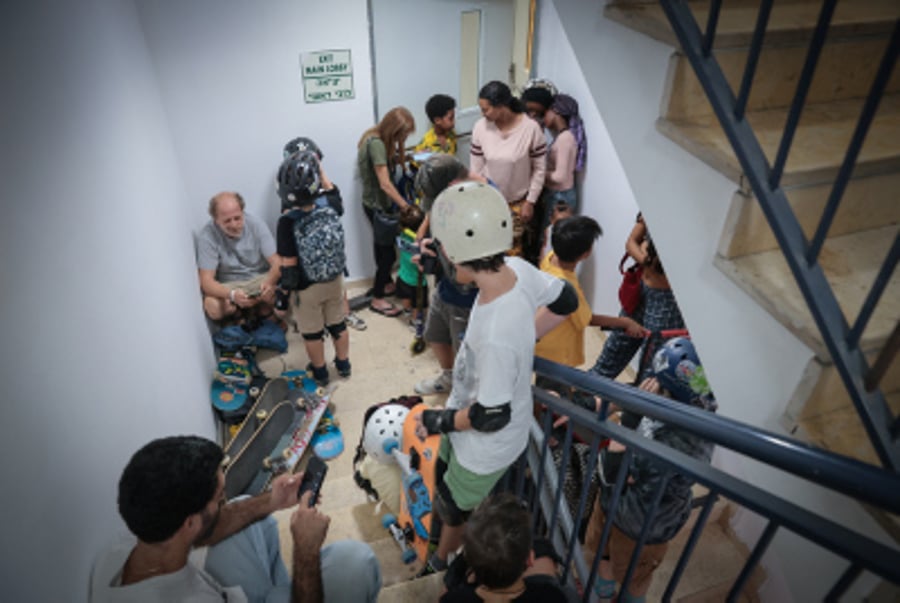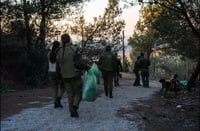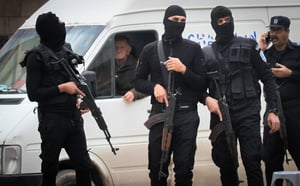
As tensions with Iran reach a fever pitch, many Israelis find themselves in an unsettling position, lacking immediate access to bomb shelters. Despite Israel's extensive network of protective structures, approximately one-third of the population does not have a shelter in their building or live close enough to a public shelter to reach one before a potential missile strike.
Those most affected by this shelter gap tend to be residents of poorer areas, including rural communities, neighborhoods with a high concentration of Israel's Arab minority, and older urban districts where buildings predate shelter regulations. For these Israelis, the threat of aerial attacks brings additional stress and uncertainty.
"I just go to the stairwell and hope for the best," said one Tel Aviv resident who declined to give her name, a hint of resignation in her voice. This makeshift solution is far from ideal, as stairwells offer minimal protection compared to purpose-built shelters.
In cities like Ashkelon, one of Israel's less affluent urban centers, many residents rely on outdoor shelters. These structures, while better than no protection at all, require people to leave their homes and expose themselves to potential danger when sirens sound.
The disparity in shelter access is particularly stark when compared to more affluent areas. In Tel Aviv, Israel's economic capital, there are 168 underground public bomb shelters, with a total of 356 including those in educational institutions and other municipal buildings. Their locations are readily available on the city's website, and orange street signs guide people to the nearest shelter.
For those with access, Israeli bomb shelters provide a sense of security in uncertain times. Constructed with reinforced concrete and fitted with heavy metal doors, these shelters are designed to withstand significant impacts. In-home shelters are built to remain standing even if the rest of the building collapses, functioning as a fortified tower within the structure.
Public shelters, which can accommodate around 200 people, are equipped with basic amenities including bathrooms, small kitchens, showers, and air filtration systems. Recently, some have been outfitted with Wi-Fi, allowing occupants to stay informed during emergencies. These shelters often become impromptu social spaces during attacks, where neighbors meet and form bonds under stressful circumstances.
The effectiveness of these shelters has been proven over decades, protecting Israelis from various threats ranging from short-range rockets to larger missiles. However, as the nation faces the prospect of more sophisticated long-range attacks from Iran, the importance of expanding shelter access to all citizens becomes increasingly critical.
Despite the looming threat, life in Israel continues with a mix of nervousness and resilience. Summer activities for children are in full swing, and grocery stores remain fully stocked. The military has placed no limits on public gatherings and is advising people to go about their daily lives. This sense of normalcy, however, is tinged with an undercurrent of anxiety.
Ofer Shabtay, a 39-year-old programmer in Tel Aviv, expresses a sentiment shared by many: "There could be real chaos, but I feel very safe." This paradoxical feeling of safety amid potential danger is common among Israelis who have grown accustomed to living under threat.
As Israel braces for potential conflict, the disparity in shelter access remains a pressing concern, highlighting the need for continued investment in civilian protection infrastructure across all communities. For now, many Israelis wait with bated breath, hoping their preparedness and resilience will see them through whatever challenges may come.
* The Wall Street Journal contributed to this article.













1 Comments